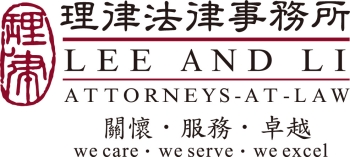On 14 January 2021 the Judicial Yuan published the IP Court's judgment in Taiwan's first patent linkage case, Merck Sharp & Dohme (MSD) Corp v China Chemical & Pharmaceutical Co Ltd (IP Court 109-Min Zhuan Su Zi-46). The IP Court authorised MSD to permanently injunct China Chemical from manufacturing its generic drug, Ezetity (10mg tablets). The IP Court explained that, based on the doctrine of equivalents, the generic drug infringed Claims 1 to 4 of Patent I337083, which protected MSD's new drug, Ezetrol (10mg tablets).
Over the past 20 years, the question of whether to introduce the US patent linkage mechanism in Taiwan has been hotly debated. On 20 August 2019 the patent linkage practice set out in Paragraph IV of the Pharmaceutical Affairs Act took effect. According to the Taiwan Food and Drug Administration (TFDA), approximately 19 Paragraph IV cases have been filed by local generics against new drug applications so far, on grounds of alleged patent invalidity or non-infringement. The pharmaceutical industry has been closely monitoring these cases and awaiting court guidance.
Speed and efficiency of trial process
The patent linkage suit was filed on 24 February 2020, assigned to the trial judge on 22 May 2020 and concluded on 31 December 2020 (Page 66 of MSD v China Chemical). The case lasted only 10 months, less than the initial 12-month stay period. The speed and efficiency of the trial process demonstrates that the IP Court can resolve patent infringement disputes expeditiously, in line with the patent linkage system's intention.
Patent Act amendment
Although the Pharmaceutical Affairs Act's patent linkage practice took effect in 2019, Congress has yet to pass the bill to amend Article 60(1) of the Patent Act, which is similar to Section 271 of the US Code. A longstanding legal controversy exists regarding whether patentees may cite Article 96 of the Patent Act to file patent linkage suits. The IP Court in MSD v China Chemical clearly stated that this was the case, even though the amendment to the Patent Act is still pending. The IP Court found that China Chemical was unjustified in filing the Paragraph IV notification and enjoying its 12-month generic marketing exclusivity while simultaneously alleging that no linkage litigation could be initiated. It further found that China Chemical's argument defied the legislative intent of the patent linkage laws (Pages 21 to 24 of MSD v China Chemical).
Bolar exemption
China Chemical alleged that it had not yet manufactured or sold its product and that its only activity to date had been to submit an abbreviated new drug application (ANDA) to the TFDA so that it could assert the Bolar exemption under Article 60 of the Patent Act.
The IP Court held that the submission of an ANDA does not amount to the manufacture or sale of patented items. Accordingly, Article 60 cannot be invoked for an exemption over a non-infringing act. The IP Court stated that the Bolar exemption under Article 60 is not a justifiable defence in patent linkage litigation (Page 21 of MSD v China Chemical).
Infringement prohibition
The IP Court prohibited China Chemical only from manufacturing the generic product at issue and not from selling, importing or using the product, as had been requested by MSD. According to the IP Court, the purpose of patent linkage litigation is to deter patent infringement. The court considered the risk of infringement and how to prevent it and concluded that MSD's rights would be protected by the manufacture prohibition (Page 75 of MSD v China Chemical) because this would make it impossible for China Chemical to commit infringement.
The IP Court's watershed decision in this case will significantly affect both the patent linkage system and patent linkage litigation for years to come.




